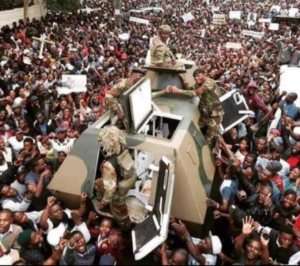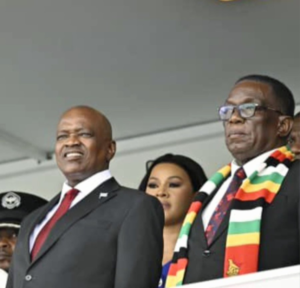ZIMBABWE’S POLITICAL CRISIS: A THREAT TO DEMOCRACY AND FAIR ELECTIONS

Zimbabwe’s political landscape is currently facing a significant crisis, with the actions of Sengezo Tshabangu, claiming to be the CCC interim secretary-general, raising concerns about the integrity of the nation’s judiciary and other oversight institutions. The recent recalls orchestrated by Tshabangu have ignited fears of a compromised system, with analysts suggesting that the opposition party CCC should consider radical measures, including withdrawing from Parliament and councils.
Despite the challenges, the CCC demonstrated strong performance in the elections held on August 23 and 24, effectively preventing the ruling party, Zanu PF, from securing a desired two-thirds majority. This outcome was notable in instances where well-resourced Zanu PF candidates, backed by substantial financial resources, were defeated, indicating that money cannot always secure votes.
In specific constituencies, like Cowdray Park and Mabvuku-Tafara, CCC candidates outshone their Zanu PF rivals, showcasing the growing support for the opposition. However, the subsequent barring of popular CCC candidates from contesting, following court rulings in favor of Tshabangu’s recalls, casts a shadow on the democratic process. This tactic seems to align with President Emmerson Mnangagwa’s strategy to strengthen Zanu PF’s position, potentially pushing Zimbabwe closer to becoming a one-party state, despite significant opposition support.
The situation has caused widespread discontent among Zimbabweans, who view these developments as a blatant disregard for their democratic choice. Observers, including academic Ibbo Mandaza and political analyst Rashweat Mukundu, have criticized the ongoing political maneuvers, highlighting their potential to erode democratic structures and principles in Zimbabwe.
Stephen Chan, a professor of world politics, suggests that the CCC must adopt a radical stance to counter these challenges. He proposes that the party could consider allowing candidates to stand as independents under certain conditions, emphasizing the need for a vigilant and proactive approach.
The scenario unfolding in Zimbabwe raises critical questions about the future of its democracy. With the possibility of Zanu PF gaining a two-thirds majority, there are concerns about potential constitutional amendments, including changes to presidential term limits, which could further entrench Mnangagwa’s power.
In conclusion, Zimbabwe’s current political crisis underscores the need for a robust and resilient democratic framework, capable of withstanding challenges to its integrity and ensuring fair representation for all citizens.



